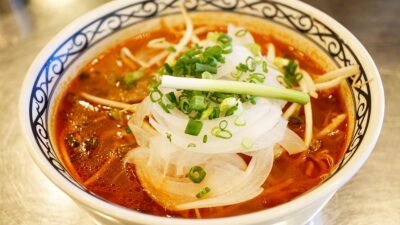Nestled in the eastern basin of the Mediterranean, Greece stands as a timeless emblem of culture, history, and culinary excellence. Greek food is not merely sustenance; it is a vibrant expression of its people’s identity, an embodiment of values ingrained through generations. From its ancient roots to its modern variations, Greek cuisine is a reflection of the land, the sea, and the rich tapestry of traditions that have shaped the Greek way of life.
A Culinary Mosaic: Ingredients of Greece
The Land and the Sea
Greece’s geographical diversity significantly influences its cuisine. The country’s rugged mountains give rise to an abundance of wild greens and herbs, while its coastline provides a wealth of fresh seafood. Staples like olives, feta cheese, and yogurt are culinary cornerstones. The nation’s Mediterranean climate nurtures an array of fruits, vegetables, and legumes, which play a crucial role in both everyday meals and festive banquets.
Local and Seasonal
Embedded in Greek cooking is the principle of using local and seasonal ingredients. Traditional dishes such as dakos from Crete, made with barley rusks, tomatoes, and local cheese, showcase the island’s unique offerings. Similarly, the famed moussaka is a testament to the richness of local eggplants and lamb. This connection to the land fosters a deep respect for nature and its bounties, promoting sustainable practices that have endured for centuries.
The Role of Food in Greek Life
Community and Hospitality
Food serves as a binding force in Greek society. Gatherings around the table are not just meals but cherished rituals that reinforce community bonds. The concept of philoxenia, or hospitality, is a cornerstone of Greek culture, often manifested through generous servings of food and heartfelt welcomes. Whether it’s a Sunday family feast or a celebration of a life milestone, Greek meals are elaborate affairs, symbolizing love and togetherness.
Celebrations and Traditions
Festivals and religious observances pepper the Greek calendar with culinary traditions. The preparation of tsoureki (sweet braided bread) during Easter, for example, is a rite steeped in symbolism and communal effort. Likewise, the variety of dishes served during the Feast of St. Nicholas reflects regional specialties, showcasing the diversity within the Greek culinary landscape.
The Evolution of Greek Cuisine
A Fusion of Influence
While steeped in tradition, Greek cuisine has evolved over centuries, absorbing influences from various cultures—Roman, Byzantine, and Ottoman among them. Dishes like souvlaki and gyros exemplify this blend, adapting to modern tastes while retaining connections to their historical origins. The recent trend towards healthy eating has also revived interest in authentic Greek fundamentals, emphasizing the Mediterranean diet’s emphasis on vegetables, seafood, and healthy fats.
The Modern Gastronomic Scene
In recent years, Greece’s culinary scene has experienced a renaissance. Chefs are embracing local ingredients and innovative techniques, reinterpreting classic dishes while preserving their essence. The rise of farm-to-table restaurants has spurred a renewed interest in regional varieties, showcasing everything from wild mountain herbs to artisanal cheeses. This culinary evolution highlights Greece’s commitment to sustainability and honoring its agricultural heritage.
Greek Food as Cultural Heritage
UNESCO Recognition
In a nod to its significance, various aspects of Greek cuisine have been recognized as part of the country’s intangible cultural heritage. The Mediterranean diet, rich in fruits, vegetables, nuts, and grains, has garnered global attention for its health benefits, further elevating Greek cuisine on the world stage. The incorporation of traditional practices in contemporary cooking ensures that age-old recipes continue to thrive.
A Flavorful Legacy
Ultimately, Greek food is a tasting journey through time, geography, and culture. Each bite tells a story—of ancient civilizations, of family histories, and of shared experiences. It embodies a spirit of resilience and adaptability, echoing the very essence of Greek identity. As more people around the world discover the wonders of Greek cuisine, its influence grows, solidifying its place as a cultural treasure at the heart of the Mediterranean.
In conclusion, Greek food symbolizes more than just a meal; it represents a rich, enduring culture that cherishes community, tradition, and respect for nature. As diners savor flavors steeped in history, they partake in a legacy that continues to nourish the Greek spirit and inspire culinary innovation across the globe.



